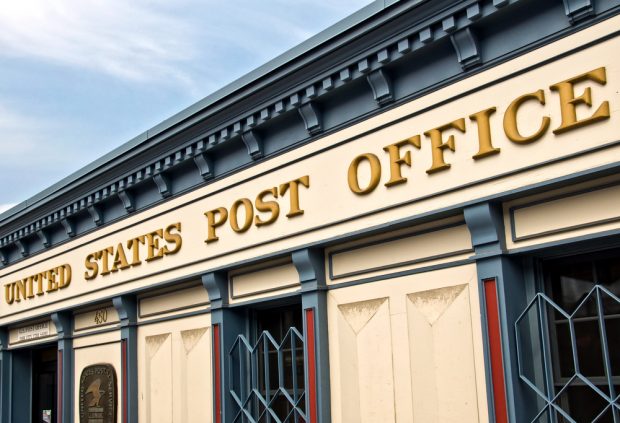 U.S. Post Office (Image: Shutterstock).
U.S. Post Office (Image: Shutterstock).
Two senators have reintroduced legislation that would allow the Postal Service to provide banking services in post offices – a sign that the proposal could reemerge as a hot-button issue in the next Congress.
Sens. Bernie Sanders (I-Vt.) and Kirsten Gillibrand (D-N.Y.) introduced S.4614 last week. The bill will not pass this year, but if Democrats capture the Senate or the White House, it could resurface during the next Congress.
Recommended For You
Financial services trade groups, including CUNA and NAFCU, have vehemently opposed postal banking for many years. From 1911 to 1966, the Postal Service accepted deposits in post offices, with the accounts earning interest.
The two senators are longtime supporters of postal banking and have sponsored legislation for it in the past.
The senators said their legislation would re-establish postal banking to provide financial security to people without easy access to financial services and raise revenue for the Postal Service.
"Being poor in America was expensive before the pandemic, and this unprecedented crisis has made it even harder for underserved communities to access the financial services they need," Gillibrand said in introducing the legislation. "The USPS is the only institution that serves every community in the country, from inner cities to rural America."
"It is absolutely unacceptable that communities all over America lack traditional banking services," Sanders said. "During the worst economic crisis since the Great Depression, we need to make sure that everyone in America is able to receive the affordable banking services that they desperately need."
The legislation calls for a non-profit bank offering low-cost checking and savings accounts, ATMs, mobile banking and low-interest loans to be established in post offices.
Several progressive organizations endorsed the bill.
"Instead of wrecking a beloved American institution that is enshrined in our Constitution and is crucial to our democracy, we should be strengthening the Postal Service with postal banking," Susan Harley, managing director of Public Citizen's Congress Watch division, said. "At a time when the Trump administration and his postmaster general are focused on dismantling the Postal Service, privatizing it and handing it over to greedy corporations, it's fantastic to see Sanders and Gillibrand taking the opposite approach."
The legislation does not have sufficient support to pass Congress right now and time is running short on this Congress. However, if Democratic nominee Joe Biden is elected president or the Democrats take control of the Senate, the issue could resurface.
This year's Democratic platform mentions postal banking as an option that should be explored.
In recent years, studies have produced conflicting estimates of the costs or benefits of postal banking. Several years ago, the Postal Service's Inspector General said that expanding the financial products that post offices offer would generate $1.1 billion annually.
However, a more recent Government Accountability Office study said that postal banking would require significant investments in technology and employee training. The GAO estimated that considering the cost involved, postal banking would generate between $100 million and $200 million a year.
© Touchpoint Markets, All Rights Reserved. Request academic re-use from www.copyright.com. All other uses, submit a request to [email protected]. For more inforrmation visit Asset & Logo Licensing.






